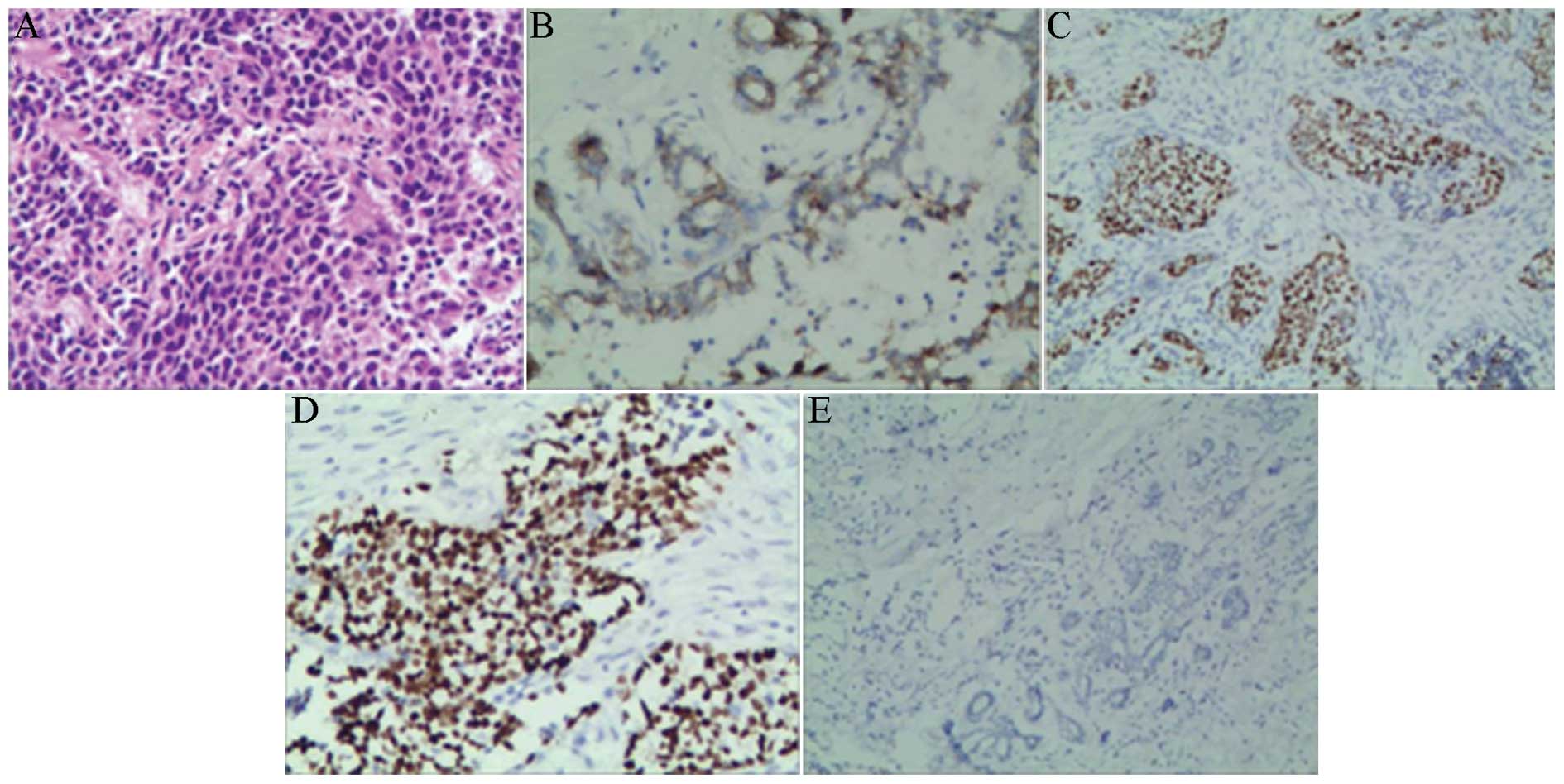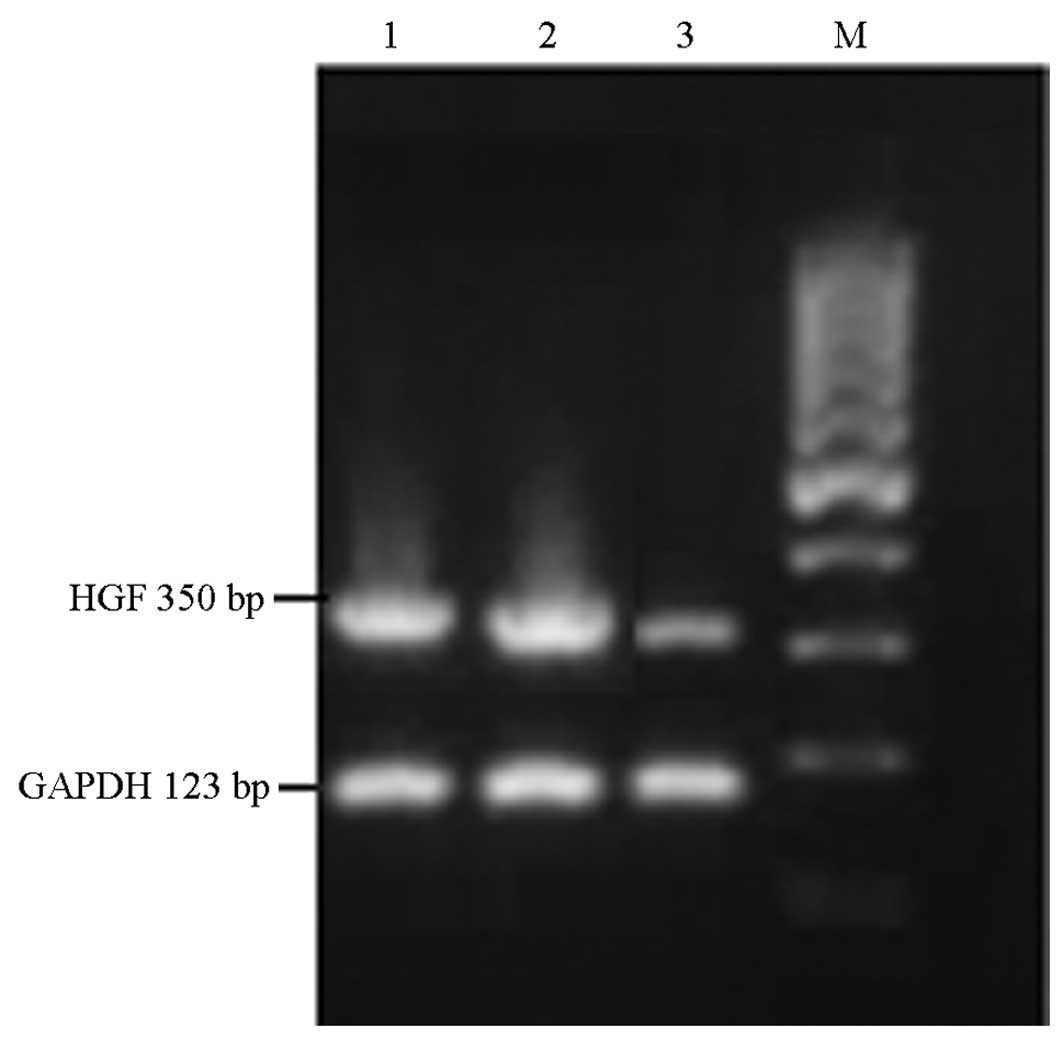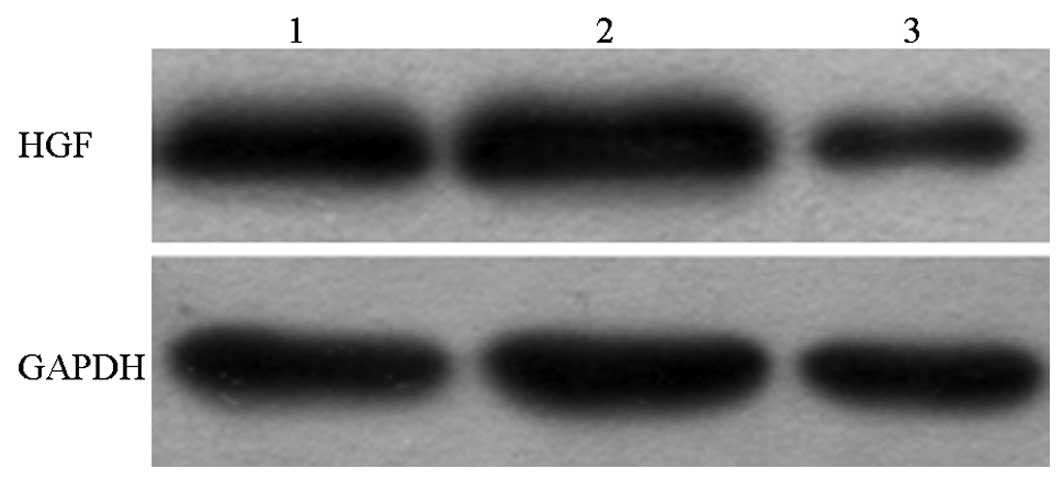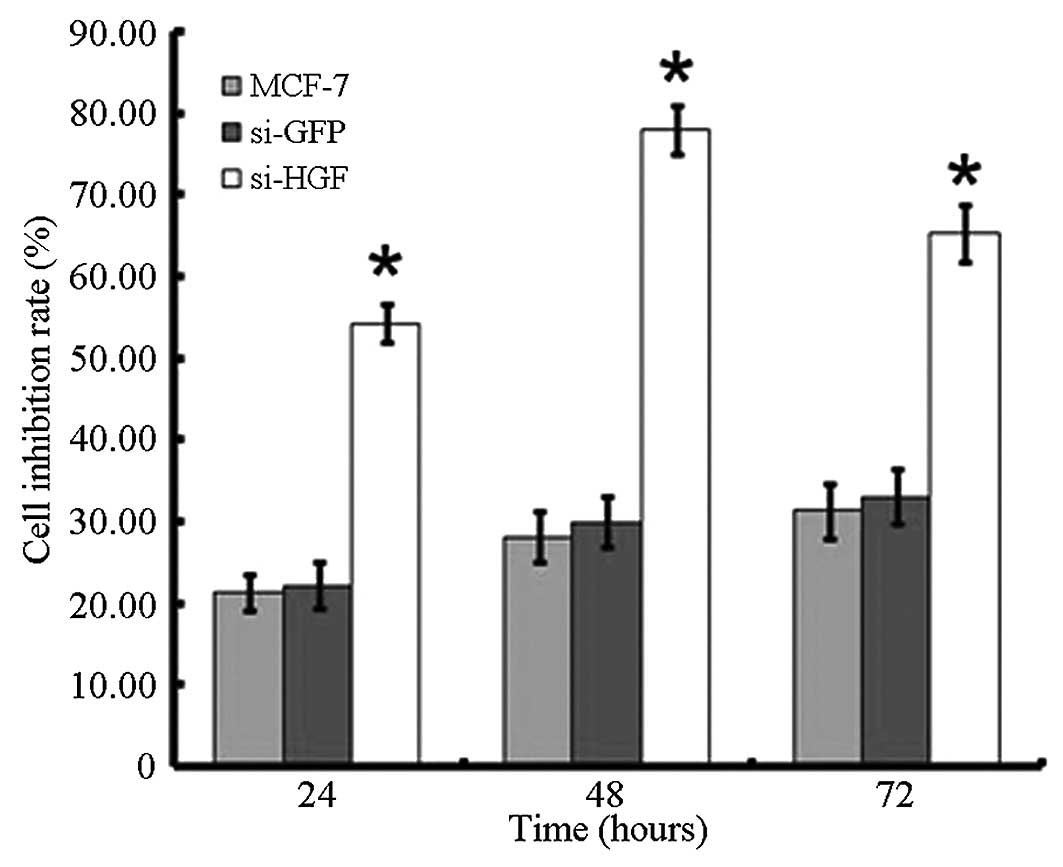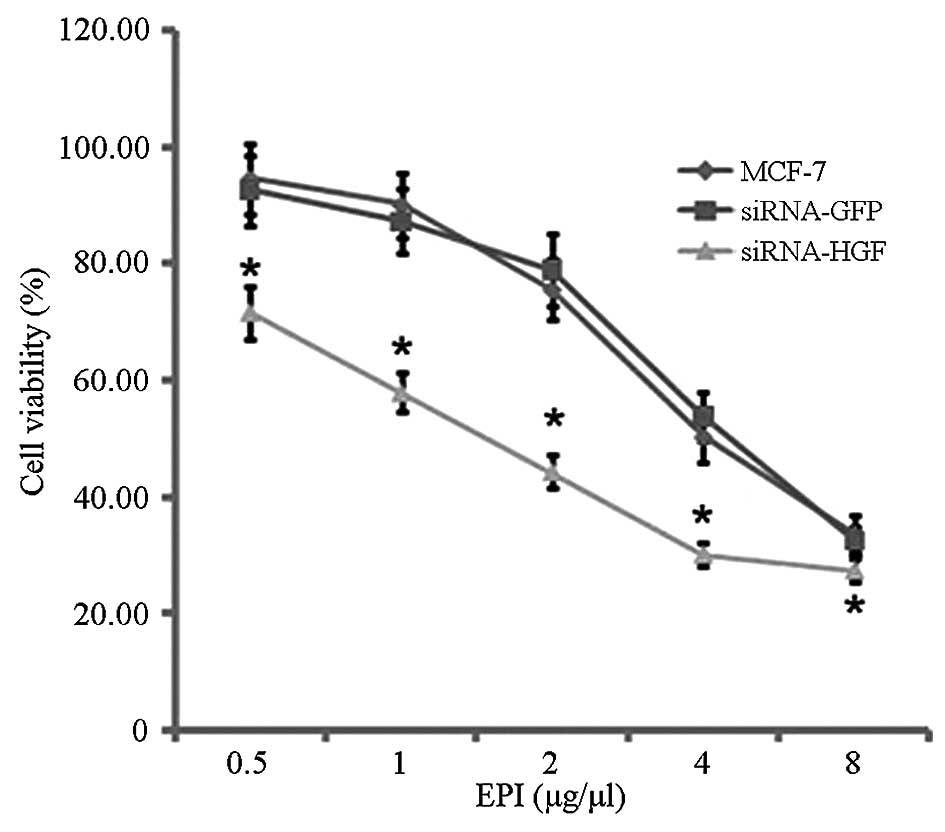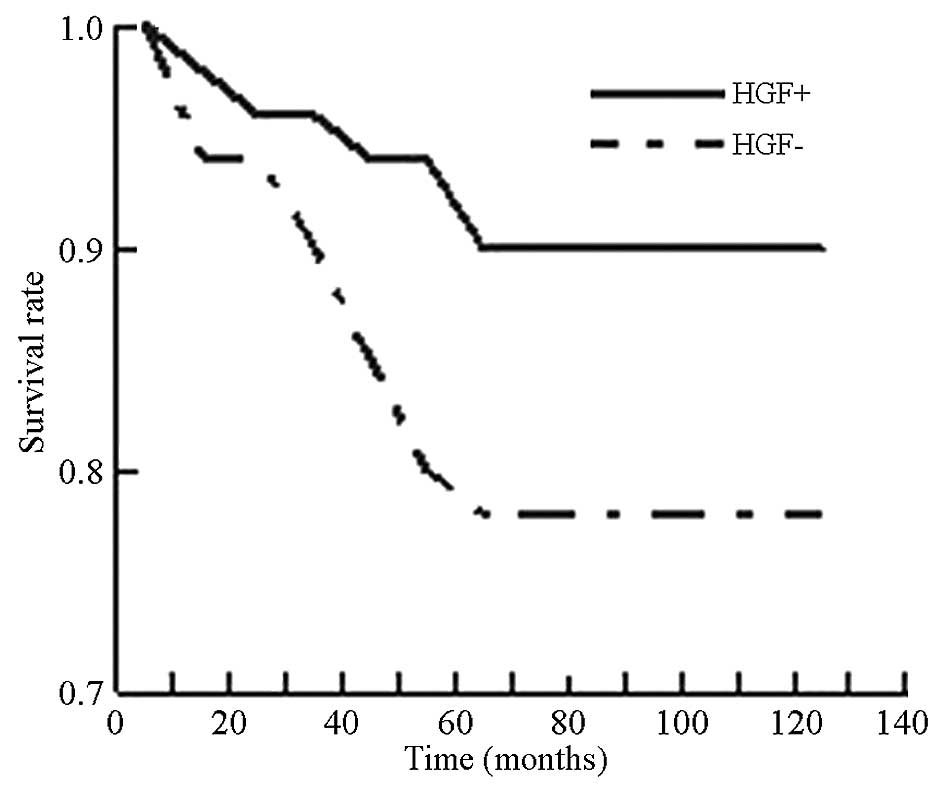|
1
|
Jemal A, Bray F, Center MM, Ferlay J, Ward
E and Forman D: Global cancer statistics. CA Cancer J Clin.
61:69–90. 2011. View Article : Google Scholar : PubMed/NCBI
|
|
2
|
Wang L, Wang C, Su B, et al: Recombinant
human PDCD5 protein enhances chemosensitivity of breast cancer in
vitro and in vivo. Biochem Cell Biol. 91:526–531. 2013. View Article : Google Scholar : PubMed/NCBI
|
|
3
|
Singh-Kaw P, Zarnegar R and Siegfried JM:
Stimulatory effects of hepatocyte growth factor on normal and
neoplastic human bronchial epithelial cells. Am J Physiol.
268:L1012–L1020. 1995.PubMed/NCBI
|
|
4
|
Parr C, Watkins G, Mansel RE and Jiang WC:
The hepatocyte growth factor regulatory factors in human breast
cancer. Clin Cancer Res. 10:202–211. 2004. View Article : Google Scholar : PubMed/NCBI
|
|
5
|
Jiang W, Hiscox S, Matsumoto K and
Nakamura T: Hepatocyte growth factor/scatter factor, its molecular,
cellular and clinical implications in cancer. Crit Rev Oncol
Hematol. 29:209–248. 1999. View Article : Google Scholar : PubMed/NCBI
|
|
6
|
El-Attar HA and Sheta MI: Hepatocyte
growth factor profile with breast cancer. Indian J Pathol
Microbiol. 54:509–513. 2011. View Article : Google Scholar : PubMed/NCBI
|
|
7
|
Gallego MI, Bierie B and Hennighausen L:
Targeted expression of HGF/SF in mouse mammary epithelium leads to
metastatic adenosquamous carcinomas through the activation of
multiple signal transduction pathways. Oncogene. 22:8498–8508.
2003. View Article : Google Scholar : PubMed/NCBI
|
|
8
|
Huang S, Ouyang N, Lin L, et al:
HGF-induced PKCζ activation increases functional CXCR4 expression
in human breast cancer cells. PLoS One. 7:e291242012. View Article : Google Scholar
|
|
9
|
Siegfried JM, Weissfeld LA, Luketich JD,
Weyant RL, Gubish CT and Landreneau RJ: The clinical significance
of hepatocyte growth factor for non-small cell lung cancer. Ann
Thorac Surg. 66:1915–1918. 1998. View Article : Google Scholar
|
|
10
|
Locatelli A, Lofgren KA, Daniel AR, Castro
NE and Lange CA: Mechanisms of HGF/Met signaling to Brk and Sam68
in breast cancer progression. Horm Cancer. 3:14–25. 2012.
View Article : Google Scholar
|
|
11
|
Woodbury RL, Varnum SM and Zangar RC:
Elevated HGF levels in sera from breast cancer patients detected
using a protein microarray ELISA. J Proteome Res. 1:233–237. 2002.
View Article : Google Scholar
|
|
12
|
Hirose Y, Kojima M, Sagoh M, Murakami H,
Yoshida K, Shimazaki K and Kawase T: Immunohistochemical
examination of c-Met protein expression in astrocytic tumors. Acta
Neuropathol. 95:345–351. 1998. View Article : Google Scholar : PubMed/NCBI
|
|
13
|
Takeuchi H, Bilchik A, Saha S, et al:
c-MET expression level in primary colon cancer: a predictor of
tumor invasion and lymph node metastases. Clin Cancer Res.
9:1480–1488. 2003.PubMed/NCBI
|
|
14
|
Yamashita J, Ogawa M, Yamashita S, Nomura
K, Kuramoto M, Saishoji T and Shin S: Immunoreactive hepatocyte
growth factor is a strong and independent predictor of recurrence
and survival in human breast cancer. Cancer Res. 54:1630–1633.
1994.PubMed/NCBI
|
|
15
|
Sheen-Chen SM, Liu YW, Eng HL and Chou FF:
Serum levels of hepatocyte growth factor in patients with breast
cancer. Cancer Epidemiol Biomarkers Prev. 14:715–717. 2005.
View Article : Google Scholar : PubMed/NCBI
|
|
16
|
Eichbaum MH, de Rossi TM, Kaul S, Bruckner
T, Schneeweiss A and Sohn C: Serum levels of hepatocyte growth
factor/scatter factor in patients with liver metastases from breast
cancer. Tumour Biol. 28:36–44. 2007. View Article : Google Scholar
|
|
17
|
Lengyel E, Prechtel D, Resau JH, et al:
C-Met overexpression in node-positive breast cancer identifies
patients with poor clinical outcome independent of Her2/neu. Int J
Cancer. 113:678–682. 2005. View Article : Google Scholar
|
|
18
|
Minuti G, Cappuzzo F, Duchnowska R, et al:
Increased MET and HGF gene copy numbers are associated with
trastuzumab failure in HER2-positive metastatic breast cancer. Br J
Cancer. 107:793–799. 2012. View Article : Google Scholar : PubMed/NCBI
|
|
19
|
Parr C and Jiang WG: Hepatocyte growth
factor activation inhibitors (HAI-1 and HAI-2) regulate HGF-induced
invasion of human breast cancer cells. Int J Cancer. 119:1176–1183.
2006. View Article : Google Scholar : PubMed/NCBI
|
|
20
|
Knuefermann C, Lu Y, Liu B, et al:
HER2/PI-3K/Akt activation leads to a multidrug resistance in human
breast adenocarcinoma cells. Oncogene. 22:3205–3212. 2003.
View Article : Google Scholar : PubMed/NCBI
|















